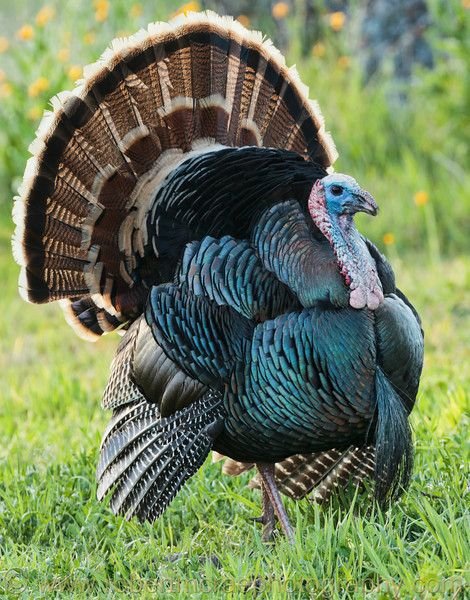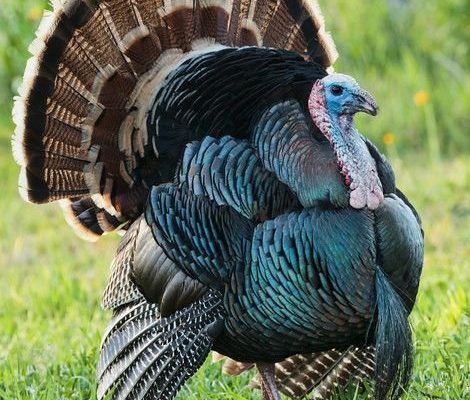
Imagine a thriving woodland or a lush meadow—the kind of place where turkeys find plenty of food, shelter, and space to roam. Bringing that kind of habitat into your backyard or farm setting isn’t just beneficial; it’s essential. Not only does it improve their quality of life, but it also enhances their physical health. So, let’s dive into how you can create this ideal setting.
Understanding Turkey Needs
To create a perfect environment for your turkeys, you first need to understand what they naturally require. Turkeys are ground-dwelling birds that love to scratch and forage for food, so providing them with space to do just that is essential. They need plenty of room to move around, as confinement can lead to stress and behavioral issues.
Think about their diet too. Turkeys love to eat grasses, seeds, insects, and even small bugs. By providing a diverse food source, you mimic what they would normally find in the wild. This not only keeps them engaged but also promotes their overall health. Honestly, the more variety you can offer, the happier and healthier your turkeys will be!
Creating the Right Space
When designing your turkey environment, the first step is to ensure they have adequate space. Ideally, turkeys should have access to at least 100 square feet per bird outdoors. This allows them to roam freely, engage in natural behaviors, and reduce stress levels.
Consider building a coop designed with both shelter and space in mind. A good coop should be enclosed to protect them from predators but also spacious enough for them to move about comfortably. You can use materials like wood and wire fencing for durability. Include perches and nesting boxes to provide them with different areas to explore and settle down.
Don’t forget about ventilation—turkeys need fresh air to thrive. Make sure your coop has windows or vents that can be opened to allow airflow, as this helps prevent respiratory issues. You want your turkeys to feel safe and comfortable in their home!
Providing Natural Foraging Opportunities
One of the best ways to enrich your turkeys’ environment is to encourage their natural foraging instincts. You might be wondering how to do this without turning your yard into a mess. Here’s the thing: Turkeys are great at finding food when they have the right opportunities.
Consider planting various plants, such as clover, alfalfa, or sunflowers, around their space. Not only do these plants provide food, but they also offer shade and shelter. You can even scatter some grains and seeds around their coop to encourage them to scratch and dig—it’s like giving them a treasure hunt!
Another fun idea is to create a foraging box. Fill a shallow box with sand or dirt and mix in some grains and dried insects. Your turkeys will have a blast digging through it, which stimulates their minds and keeps them entertained.
Water Access and Quality
Water is another crucial element for turkeys. Just like us, they need access to clean, fresh water at all times. It’s essential for their overall health and helps with digestion, especially when they’re eating a lot of different food sources.
Make sure to provide a reliable source of water that won’t freeze in colder months. You can use heated waterers or even rubber bowls that can be emptied and refilled easily. Keep an eye on the water cleanliness, as turkeys can be messy eaters, and dirty water can lead to health issues.
You might also want to place the water in a shaded area to prevent it from heating up too fast. And remember, having multiple water sources can help reduce competition and encourage them to drink more, especially in warmer weather.
Creating Shelter and Shade
Shelter is important for turkeys to feel safe and secure, especially in adverse weather conditions. Provide adequate shelter from rain, snow, and direct sunlight. A well-constructed coop with a roof can give them the protection they need from various elements.
Consider incorporating trees or large shrubs in their roaming area. These natural features offer shade and protection, making them feel more at home. Birds generally will seek out cover to reduce stress from predators, so having these natural shields is beneficial.
Rotating or varying the location of their shelter can also keep them engaged. It’s like moving to a new neighborhood every now and then. Just make sure the new site has similar resources, like water and food, easily accessible.
Social Environment and Behavior
Turkeys are social creatures, and their social environment can significantly affect their well-being. When raising turkeys, it’s best to keep them in groups, as they thrive on social interaction. A flock allows them to express natural behaviors like pecking, preening, and even establishing a pecking order.
You might also want to introduce some diversity into their lives. If you’re raising just one breed, consider mixing them with different breeds or even other poultry. This can lead to more social interaction and engagement. Plus, watching them interact with different species can be quite entertaining!
Ensure that you’re observing their behavior regularly. If you see signs of bullying or stress within the flock, it might be necessary to separate certain individuals until they can rejoin the group without issues.
Regular Health and Environmental Checks
Finally, maintaining a healthy environment is an ongoing task that shouldn’t be overlooked. Regularly check the conditions of the coop and outdoor area for cleanliness and safety. Remove any waste promptly to prevent build-up, which can lead to disease.
Make it a routine to inspect the health of your turkeys too. Look for signs of distress, illness, or injury—catching these issues early can make a big difference. Keep track of their eating habits and behaviors, as any sudden changes can signal health problems.
Establishing a routine for cleaning and checks can help you stay on top of everything. Creating a checklist for daily, weekly, and monthly tasks might make this easier. Keeping a close eye on your flock ensures that their environment remains healthy and enriching.
In conclusion, creating a natural, enriched environment for turkeys is not just about setting up a coop; it’s about establishing a whole ecosystem that promotes their well-being. By providing space, food, water, shelter, and social interaction, you’re setting the stage for happy and healthy turkeys. And honestly, when your turkeys are thriving, you’ll find joy in watching them flourish!

